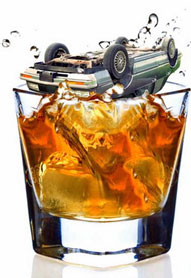 After the implementation of the May 1 Criminal Law Amendment (VIII), draconian driving behavior was severely investigated across the country. Yesterday, Zhang Jun, deputy secretary of the party group and vice president of the Supreme People's Court, stated at the forum on criminal trials in the national courts that he was intoxicated. Drivers should be cautious in investigating criminal liability and should be linked to administrative punishments.
After the implementation of the May 1 Criminal Law Amendment (VIII), draconian driving behavior was severely investigated across the country. Yesterday, Zhang Jun, deputy secretary of the party group and vice president of the Supreme People's Court, stated at the forum on criminal trials in the national courts that he was intoxicated. Drivers should be cautious in investigating criminal liability and should be linked to administrative punishments. Zhang Jun said that the Supreme People's Court had issued four judicial explanations on the time validity of the amendment to the Criminal Law (8), the determination of charges, the limitation of commutation of punishment for certain suspended prisoners, and the application of a prohibition against prisoners and probationers, due to criminal law. The amendment (8) has just been implemented and much work remains to be done on the correct implementation of this law.
He said that the courts at all levels must correctly understand the composition of dangerous driving offences. After May 1, public security agencies across the country have successively seized a group of drunk driving suspects and will soon be sued in the people's court. All local courts should be cautious in handling specific criminal liabilities. They should not only understand the provisions of the Criminal Law Amendment (VIII) from the point of view of literature. They should regard it as a criminal offence to drive a motorized vehicle as long as it meets the drunk driving standards, and it must be accompanied by a revised road. Traffic safety laws are linked.
That is to say, although the Criminal Law Amendment (VIII) stipulates that drunk driving motor vehicles must be investigated for criminal liability, it does not clearly state the conditions for serious or semblance of bad conditions, but it jeopardizes social behavior according to the principles stipulated in Article 13 of the General Principles of Criminal Law. Significant minor harm is not considered a crime. If a drunk driving motor vehicle on the road needs to be investigated for criminal responsibility, attention should be paid to the connection with the administrative penalty, and the act that could have been punished according to the Road Traffic Safety Law should be brought directly to the court for investigation of criminal liability.
There is no contradiction between the general principle of follow-up and drunk driving and punishment. Ding Hai lawyers of Beijing Tianru Law Firm believe that the provisions of the general provisions of the criminal law have a guiding role for specific articles. "Those who endanger the social behavior are significantly less harmful, and do not consider it a crime." The regulations do not contradict the composition of dangerous driving offences. Instead, they hope that the judges will follow the principle of equal emphasis on education and disciplinary action. They will carefully investigate criminal responsibility for drunk drivers who have relatively minor circumstances. This is also in line with the original intention of legislation.
According to the criminal law, drunk driving is a dangerous crime, and the difference from a behavioral criminal is that there is a danger as long as the behavior is implemented. Therefore, the Criminal Law Amendment (8) As long as it constitutes drunk driving, it can be held criminally liable. It does not stipulate that the circumstances are serious or minor, but in practice, the seriousness of the circumstances is difficult to define on its own, and it is easy to cause non-compliance in the punishment.
Netizens questioned that drunk driving is a crime. It is unquestionable that drunk driving must be judged.
@ If the mouth opens, all previous laws become wastepaper. Nine days @ does not mean drunk driving does not matter, as long as it does not matter on the line? Hefei, a netizen @ If you wait until drunk driving, drunk driving conditions to form a serious fact of injury and then punished, what is the original intention of the law?
Boron Nitride is a thermally and chemically resistant refractory Boron Product compound of boron and nitrogen with the chemical formula BN. Boron Nitride Ceramic exists in various crystalline forms that are isoelectronic to a similarly structured carbon lattice. The hexagonal form corresponding to graphite is the most stable and soft among Hexagonal Boron Nitride polymorphs, and is therefore used as a lubricant and an additive to cosmetic products. The cubic (zincblende aka sphalerite structure) variety analogous to diamond is called c-Boron Nitride Powder; it is softer than diamond, but its thermal Pvc Resin and chemical stability is superior. The rare wurtzite oron Nitride Coating modification is similar to lonsdaleite but slightly softer than Ethylene-Vinyl Acetate the cubic form.
Because of excellent thermal and chemical stability, boron nitride ceramics are used in high-temperature equipment. Boron nitride has potential use in nanotechnology.
Hexagonal Boron Nitride 50nm (along with Si3N4, NbN, and BNC) is reported to show weak fibrogenic activity, and to cause pneumoconiosis when inhaled in particulate form. The maximum concentration recommended for nitrides of nonmetals is 10 mg/m3 for BN and 4 for AlN or ZrN.
Boron Nitride Ceramic,Hexagonal Boron Nitride,Boron Nitride Powder,Boron Nitride Coating,Hexagonal Boron Nitride 50nm
HENAN LIHAO CHEM PLANT LIMITED , https://www.lihaochemicals.com